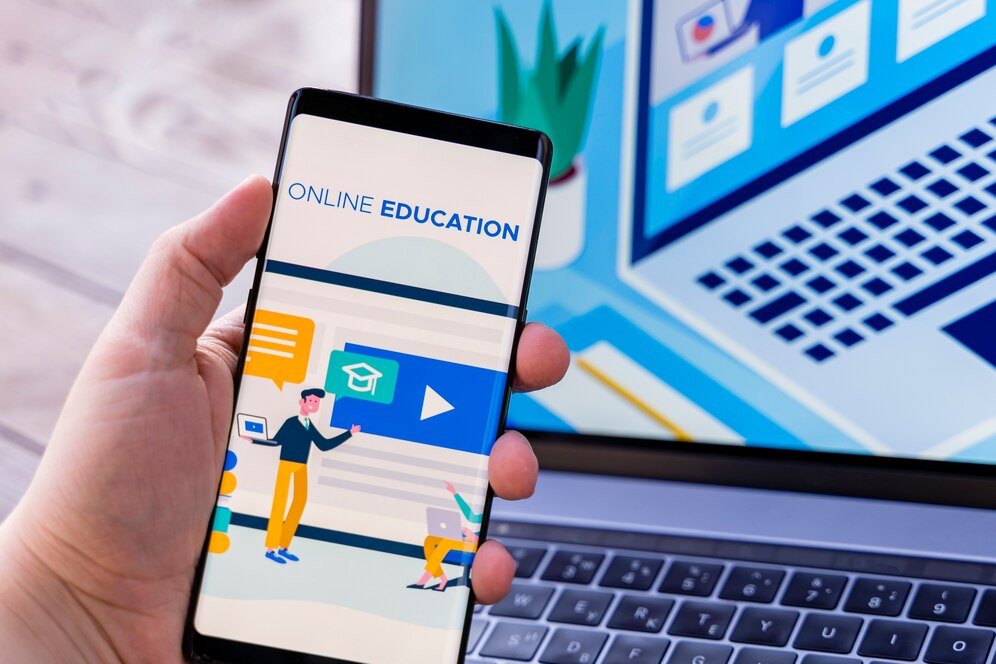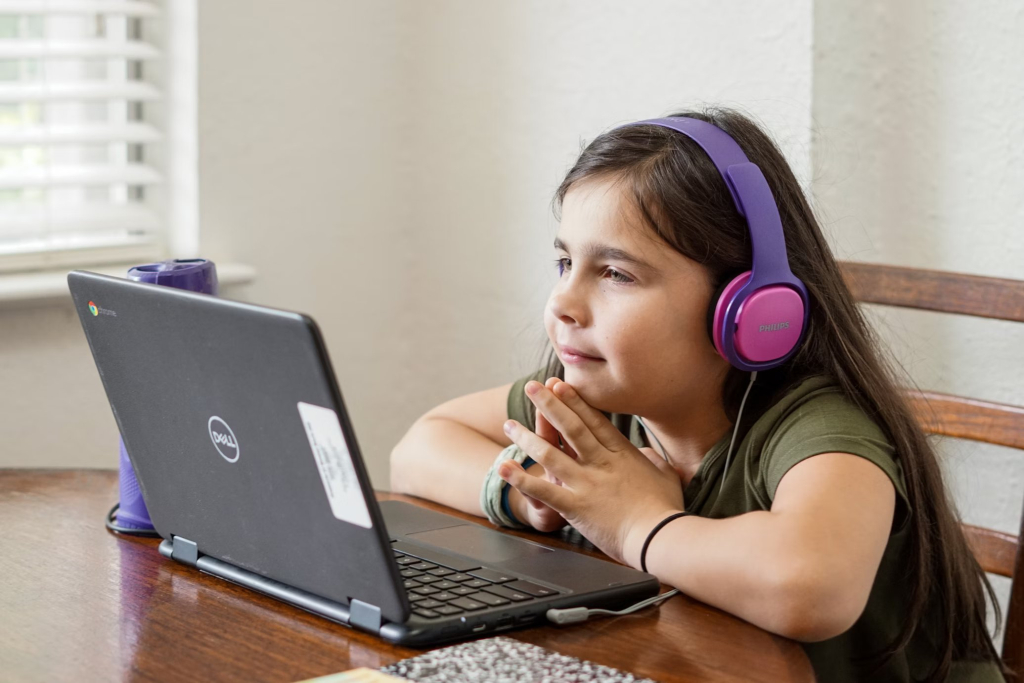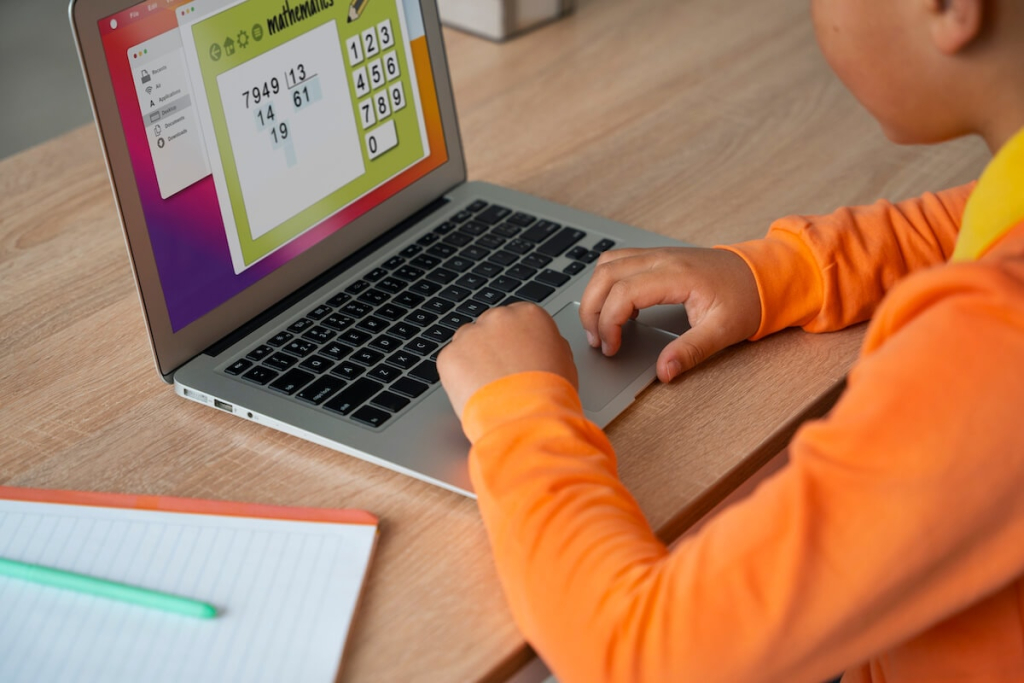
Educational Apps and Websites for Back-to-School Learning
As the back-to-school season approaches, both students, parents, and educators are gearing up for a new academic year filled with learning and growth.
In today’s digital age, technology plays a crucial role in enhancing the learning skills and educational experience. Applications, or other apps, and websites offer innovative ways to make learning more engaging, interactive, and effective, especially for younger students.
Here is a comprehensive guide to some of the best educational apps and websites to help students excel in their studies.
Features and purposes of best educational apps and websites
Educational apps and websites for back-to-school learning are digital tools designed to support and enhance the educational experience of students.
These resources leverage technology to provide interactive, personalized, and engaging content that can be accessed anytime and anywhere.
Learning management systems (LMS)
Learning management systems (LMS) is a learning app that streamlines classroom organization for educators, support remote learning, and enhance communication and collaboration among all participants.
They offer features such as assignment management, communication tools, and resource sharing.
Interactive learning apps
Interactive learning apps make learning fun and interactive. These offer engaging lessons across various subjects, practice exercises, and progress tracking to help students grasp concepts more effectively and retain information longer.
Educational games
Educational games incorporate game elements like points, levels, and rewards to motivate students.
They focus on specific subjects and present educational challenges that require critical thinking and problem-solving, making difficult subjects like math lessons more approachable and enjoyable.
Language learning apps
Language learning apps help students acquire new languages through interactive and immersive methods.
They offer lessons on vocabulary, grammar, and pronunciation, practice activities, and progress tracking to cater the app to different learning styles.
Online course platforms
Online course platforms provide opportunities for advanced learning and professional development.
They offer a wide range of courses across different fields, taught by industry experts or university professors, and provide certificates and degrees upon course completion.
Research and reference tools
Research and reference tools help students gather information, conduct research, and complete assignments more efficiently.
They provide access to a wealth of information and data, improves reading comprehension, offer tools for solving mathematical problems, generating citations, and more, ensuring that information is accurate and from credible sources.
Productivity and organization apps
Productivity and organization apps help students, especially young students, stay organized and manage their time effectively.
These are apps for students and young learners that offer task management, note-taking, and collaboration tools to improve academic performance.
Educational apps and websites for back-to-school learning are versatile tools that cater to various aspects of education, from classroom management and interactive learning to research and organization.
By integrating these digital resources into their study routines, students can enjoy a more personalized, engaging, and efficient learning experience.
Benefits of educational apps and websites

Educational apps and websites have transformed traditional learning methods, offering numerous advantages that enhance the educational experience for students, parents, and educators.
1. Digital tools can adapt to each student’s learning pace and style. These provides customized content that helps students focus on areas needing improvement and using algorithms to adjust the difficulty level based on performance.
This personalized approach helps students understand and retain information more effectively, boosting their confidence and academic performance.
2. Interactive and gamified elements make learning more enjoyable. Features like points, badges, and leaderboards make learning fun and competitive, while quizzes, videos, and interactive exercises break the monotony of traditional learning.
This increased engagement and motivation lead to longer study times and improved learning outcomes.
3. Learning materials are accessible anytime and anywhere, accommodating different schedules and learning environments. Students can access educational content whenever they need, making it easier to fit learning into their daily routines and supporting distance education.
This greater accessibility ensures continuous learning, reducing disruptions and accommodating diverse learning needs.
4. Many educational platforms offer features that promote collaboration and communication. These tools facilitate group work and peer interaction, enhancing social and teamwork skills, and enable real-time feedback and communication between educators and students.
Collaborative learning fosters a sense of community, enhances problem-solving skills, and encourages students to learn from each other.
5. Educational apps and websites help develop a range of skills beyond traditional academic subjects. They engage students in problem-solving activities that enhance analytical and critical thinking abilities and familiarize students with digital tools and technologies, preparing them for future academic and professional environments.
This skill development ensures that students are well-rounded and equipped to tackle various challenges both in school and in their future careers.
6. Digital tools provide parents with insights into their child’s learning progress through detailed reports and analytics on student performance, keeping parents informed. This enables parents to support their child’s learning at home with additional resources and guidance.
Increased parental involvement can lead to better academic performance and a more supportive home learning environment.
7. Many educational apps and websites are free or low-cost, making quality education more accessible. They reduce the need for costly textbooks and supplementary materials and provide access to high-quality educational content regardless of geographic or economic barriers.
These cost-effective educational tools democratize learning, ensuring that more students have the opportunity to benefit from quality education.
8. Immediate feedback helps students understand their mistakes and learn from them quickly. Quizzes and assignments can be graded instantly, allowing students to see their results immediately, and detailed explanations provide insights for better understanding.
Real-time feedback helps students improve more rapidly and stay on track with their learning goals.
Educational apps and websites offer a multitude of benefits that enhance the learning experience. They provide personalized, engaging, and accessible content that supports continuous learning and skill development.
By integrating these digital tools into the back-to-school routine, students, educators, and parents can enjoy a more efficient, effective, and enjoyable educational journey.
Educational apps and websites

Educational apps and websites have transformed the landscape of learning, providing indispensable tools that enrich the educational experience for students of all ages and backgrounds.
Here is an overview of notable top educational apps and platforms that highlight the diversity and impact of these digital resources:
AkadsPH
Connects Filipino students with qualified tutors for personalized one-on-one learning sessions. This online tutoring platform offers support in various subjects and accommodates flexible scheduling, allowing students to receive tailored assistance that complements their individual learning needs.
It aims to enhance academic performance and foster deeper understanding through personalized educational support.
Coursera
Stands out as a global leader in online education, partnering with universities and organizations worldwide to offer a wide range of courses, specializations, and degrees.
With content delivered by experts from esteemed institutions, Coursera provides flexible learning options that include self-paced modules and rigorous assessments.
This platform empowers learners to enhance their knowledge and skills in diverse fields, from business and technology to arts and sciences.
DepEd Commons
An initiative by the Department of Education, offers free access to a wealth of educational resources aligned with the K-12 curriculum.
It includes e-books, lesson plans, and interactive materials designed to support both educators and students alike in their educational journey.
DepEd Commons promotes equitable access to quality education across the Philippines, ensuring that every learner has the tools needed for academic success.
Duolingo
Revolutionizes language learning through its gamified platform, offering courses in over 30 languages. Its interactive lessons and daily goal-setting feature engage users in an enjoyable learning experience that enhances language proficiency and cultural understanding.
The adaptive learning system of the free app also adjusts to individual learning styles, making it accessible and effective for learners worldwide.
Genyo e-Learning
Provides K-12 students in the Philippines with a comprehensive online platform enriched with multimedia content.
It offers interactive lessons, quizzes, and assessments that utilize videos, animations, and simulations to engage learners and enhance comprehension.
Genyo e-Learning supports educators with tools for monitoring student progress and customizing learning experiences, promoting interactive and effective learning environments.
Google Classroom
Facilitates seamless communication and collaboration between educators and students, streamlining the distribution of assignments and feedback.
This free web service integrates with the suite of productivity tools by Google, such as Docs and Slides, to enhance classroom management and support both in-person and remote learning environments.
Google Classroom empowers educators to create engaging learning experiences and foster academic growth.
Khan Academy in Tagalog
Provides accessible educational resources in the local dialect, offering instructional videos and exercises across various subjects.
This version of Khan Academy supports self-paced learning and interactive practice, empowering Filipino students to strengthen their academic skills in math, computer science,, and other disciplines.
Quipper
Serves as a comprehensive e-learning platform best education apps tailored to Filipino students from elementary to senior high school levels. It offers curriculum-aligned lessons, interactive quizzes, and educational tools that enhance learning through engaging multimedia content.
Quipper supports educators with features for creating assignments, tracking student progress, and delivering timely feedback, optimizing the learning experience both inside and outside the classroom.
Quizlet
Enables students to create, study, and share custom flashcards, quizzes, and interactive games. With customizable study sets and various learning modes—including matching games and practice tests—Quizlet accommodates diverse learning styles and promotes collaborative learning through shared study sets and group activities.
This versatile platform enhances retention and comprehension, making it a valuable resource for students seeking effective study aids.
Scratch
Introduces students to coding and computational thinking through a user-friendly, block-based programming interface. This free platform allows learners to create interactive stories, games, and animations, fostering creativity and problem-solving skills.
Scratch encourages collaboration within its online community, where students can share projects, receive feedback, and explore a wide range of coding concepts in a supportive learning environment.
Sulong EduKalidad
Supports educational improvement initiatives in the Philippines through various online resources and training programs.
Another initiative by the Department of Education, it aims to enhance the quality of education by providing professional development opportunities for educators, online learning modules for students, and community engagement activities.
Sulong EduKalidad promotes inclusive and sustainable educational development across the country, empowering stakeholders in the pursuit of educational excellence.
TED-Ed
Offers engaging educational content through short, animated video lessons that simplify complex concepts across diverse topics. Supported by lesson plans and discussion questions, TED-Ed fosters curiosity and critical thinking among learners of all ages.
This platform inspires a deeper understanding of the world through interactive and visually appealing educational materials.
Wolfram Alpha
Serves as a powerful computational knowledge engine that provides solutions for mathematical problems, data analysis, and factual queries. With step-by-step explanations and interactive visualizations, Wolfram Alpha supports students in mathematics and sciences, offering tools for problem-solving and enhancing math skills and comprehension in academic disciplines.
Educational apps and websites play a pivotal role in modern education by offering innovative tools and resources that cater to diverse learning needs.
From personalized tutoring and interactive language learning to comprehensive curriculum support and global online courses, these platforms empower learners, educators, and institutions alike to achieve academic excellence and lifelong learning.
Tips to make the most of educational apps and websites

To optimize the educational experience with apps and websites, effective strategies can greatly enhance learning outcomes. Here are practical tips tailored for students, parents, and teachers:
1. Choose the right tools. Select apps and websites aligned with specific educational goals and curriculum requirements. Conduct thorough research, read reviews, and utilize trial periods to ensure the chosen tools meet educational standards and are suitable for the intended learning objectives.
2. Set clear goals. Define both short- and long-term goals when using educational tools. Utilize progress tracking features to monitor achievements and identify areas needing improvement. Regularly reassess and adjust goals based on progress and evolving learning needs to maintain focus and motivation.
3. Create a study schedule. Establishing a consistent study routine is essential for maximizing learning efficiency. Allocate dedicated time for various subjects and activities, incorporating short breaks to prevent burnout and sustain concentration throughout study sessions.
4. Engage. Rather than passively consuming content, actively engage with interactive features such as quizzes, games, and discussions provided by educational tools.
Take comprehensive notes during study sessions to reinforce understanding and retention of key concepts. Do not hesitate to ask questions or seek assistance when encountering difficulties.
5. Use various resources. Take advantage of many formats available, including videos, interactive lessons, and supplementary readings.
Incorporate a mix of digital resources and traditional materials like textbooks to accommodate different learning styles and enhance comprehension through various learning experiences.
6. Collaborate with peers. Utilize collaborative tools to participate in group projects, discussions, and peer feedback sessions. Engaging in study groups fosters teamwork skills, allows for knowledge exchange, and offers diverse perspectives on course materials, thereby enhancing overall learning outcomes.
7. Seek feedback. Regularly seek feedback from educators, parents, or tutors to gain insights into academic progress and areas for improvement.
Utilize features that facilitate teacher feedback on assignments and performance evaluations, keeping parents informed and involved in tracking academic milestones and setting educational goals.
8. Stay organized. Employ productivity and organization apps to manage assignments, deadlines, and study schedules effectively.
Maintain comprehensive task lists and utilize digital calendars to stay organized and on track with academic responsibilities. Organize digital notes and learning resources for easy access and efficient review.
9. Maintain a balanced approach. Balance screen time with offline activities to promote overall well-being and mental health. Incorporate physical activities, hobbies, and relaxation techniques into daily routines to support optimal learning conditions and foster a healthy lifestyle.
10. Evaluate and adjust. Regularly evaluate the effectiveness of chosen educational tools and strategies.
Review progress periodically, adapt study techniques based on performance outcomes, and remain open to exploring new apps and resources that better cater to evolving learning needs and preferences.
By implementing these tips—choosing suitable tools, setting clear goals, creating structured study routines, actively engaging with content, utilizing diverse learning resources, collaborating with peers, seeking feedback, staying organized, maintaining balance, and continuously evaluating strategies—students, parents, and teachers can maximize the benefits of educational apps and websites.
These practices contribute to a more efficient, effective, and rewarding back-to-school learning experience for all involved.

Celebrate Life’s Milestones in Camella!
Make unforgettable memories in a Camella home.
Our communities are designed to elevate your living experience.

